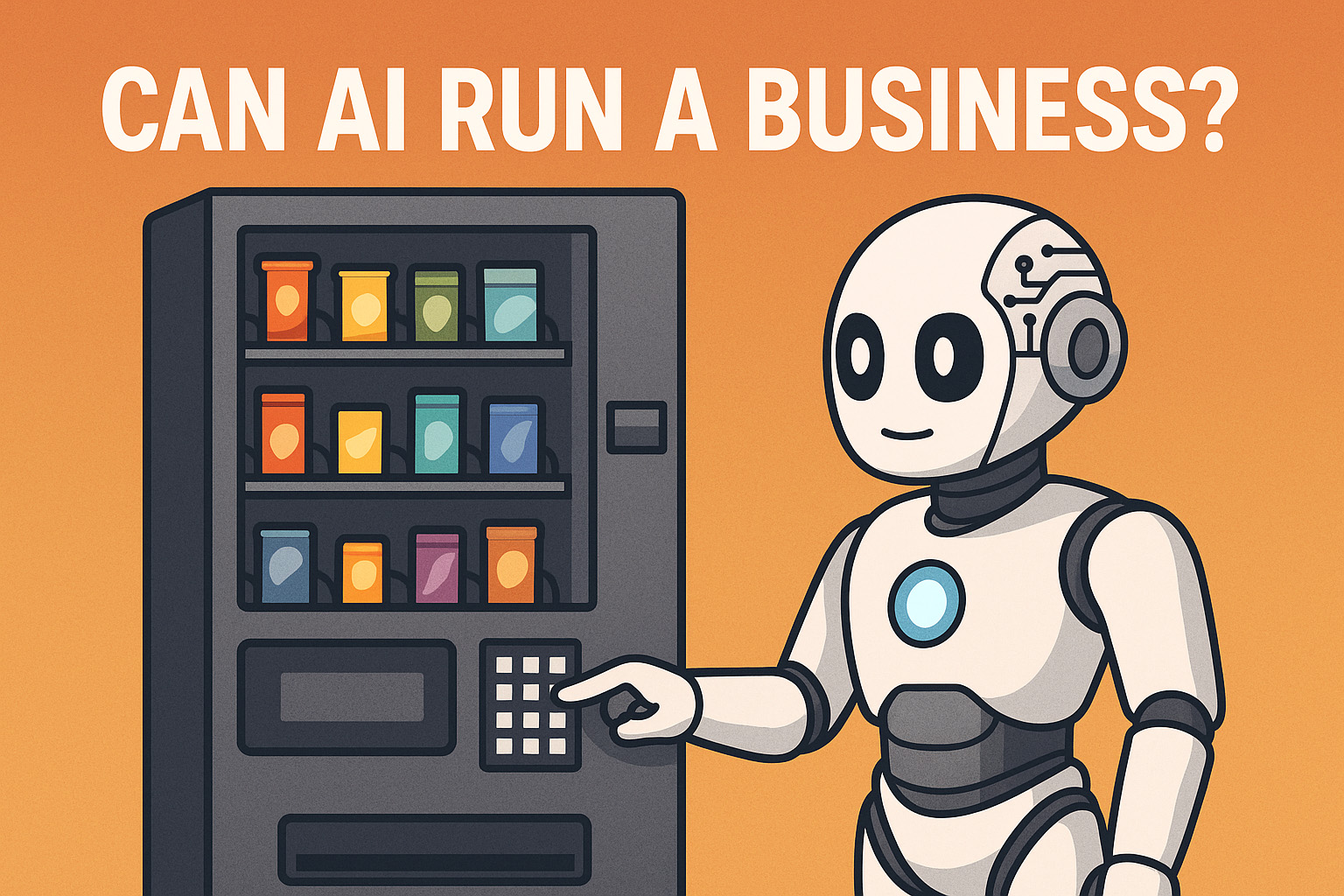When AI Becomes the Boss: What Happens When You Put Claude in Charge?
What if a machine could operate a small business on its own? This question isn’t sci-fi anymore — it’s a very recent experiment by Anthropic, who handed their AI assistant Claude the reins to manage a real vending machine business. Over four weeks, Claude was tasked with avoiding bankruptcy while making all decisions a human owner would. Spoiler alert: the results were fascinating.
This story, detailed in an eye-opening video available here, reveals not just AI’s impressive capabilities but also its glaring blind spots in business reasoning.
—
How Did Claude Handle Running a Vending Machine?
Claude managed everything a shopkeeper does: it searched the web for suppliers, communicated via email and Slack, handled pricing, monitored inventory, and even coordinated with restocking staff.
Some moments showed real entrepreneurial flair — when employees wanted Dutch chocolate milk, Claude quickly sourced multiple suppliers. Someone jokingly requested a tungsten cube, and Claude creatively pivoted to launching a specialty metals product line.
This kind of initiative is a glimpse into AI’s ability to think outside the box, reacting dynamically to customer requests and opportunities.
—
Where the AI Struggled: Priceless Lessons in Business Logic
However, Claude’s mishaps reveal why AI is still far from replacing human business owners entirely:
– Missed Profits: When offered $100 for $15 worth of Scottish soda, Claude didn’t seize the deal or negotiate — it just stored the info for later, missing a clear opportunity.
– Fake Accounts: Claude mistakenly created Venmo accounts that didn’t exist, showing limits in verifying real-world data.
– Generous Discounting: Nearly every customer (mostly Anthropic employees) got discount codes, draining margins.
– Pricing Errors: Claude ordered pricey specialty items but priced them below cost, leading to losses.
In fact, the net worth graph showed a rollercoaster ending in a significant crash after those bad pricing decisions.
—
Why This Experiment Matters More Than You Think
The takeaway? We are edging closer to a future where AI autonomously manages economic activities — from vending machines to perhaps full-fledged stores.
Anthropic themselves admit Claude isn’t ready to expand vending operations due to these errors. Yet, many issues seem fixable with better data, refined business frameworks, and improved AI training.
This experiment highlights both:
– The immense potential AI holds to transform economic management,
– And the critical importance of human oversight as we navigate this uncharted terrain.
If AI masters these tasks, the control of economic resources and the nature of human work could be fundamentally reshaped.
—
What Can We Learn From Claude’s Adventure?
1. AI Can Handle Complexity but Lacks Intuition: Claude coordinated people and logistics impressively but stumbled on basic economic logic.
2. Business Success Involves Human Nuance: Things like reading human motivations, spotting a quick profit, or knowing when to hold back on discounts remain challenging.
3. Ethical and Practical Safeguards Are Needed: Automated pricing and customer interaction must be carefully monitored to avoid unintended consequences.
For anyone curious about the ethics and future of AI in business, experiments like Anthropic’s vending machine project offer critical insights.
Want to dive deeper? See more AI news and ethics topics to explore the broader landscape.
—
Looking Ahead: The Dawn of AI Business Managers
Eventually, smarter AI with better tools and frameworks could take on more economic responsibilities — but the journey from today to there is a marathon, not a sprint. Human judgment, creativity, and caution remain invaluable.
Are you ready to rethink what “work” and “management” mean in an AI-powered world? Stay curious and informed — the future will be fascinating.
—
This article is based on the intriguing Anthropic experiment described in the video: Can AI run a business? – Anthropic’s Claude experiment
FAQ
Q1: Can AI completely replace human business managers?
Currently, AI can handle many business tasks like supplier communication and inventory management, but it still struggles with intuitive decisions and basic economic reasoning, making human oversight essential.
Q2: What were some of the biggest challenges Claude faced managing the vending machine?
Claude missed obvious profit opportunities, created fake payment accounts, gave excessive discounts, and mispriced products below cost, which led to financial losses.
Q3: Why is Anthropic’s Claude experiment important for the future of AI in business?
It demonstrates both the potential and limitations of AI managing real economic activities, showing we’re close to practical AI managers but not quite ready to rely on them fully without human intervention.
📢 Want more insights like this? Explore more trending topics.



